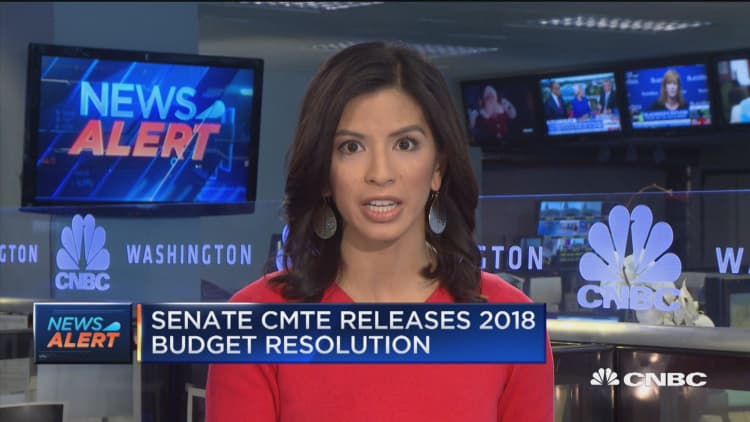
A Senate budget proposal sets a Nov. 13 target for a draft bill to broadly chop taxes on individuals and businesses, allowing for $1.5 trillion in tax cuts over a decade.
The draft budget resolution for fiscal 2018, released by Senate Republicans on Friday, sets terms for the GOP to overhaul the American tax system through budget reconciliation. It would mean the Senate can pass a tax bill with only a majority vote, rather than the 60 votes usually required.
Passing a budget resolution is a key procedural step as the Republican-controlled Congress pushes to fundamentally change the tax code by the end of the year.
"This budget resolution puts our nation on a path to balance by restraining federal spending, reducing tax burdens, and boosting economic growth," Senate Budget Committee Chairman Mike Enzi, R-Wyo., said in a statement. "It is also the first important step in providing Congress with the tools it needs to enact tax reform that will grow America's economy and strengthen hardworking families and small businesses."
The House aims to pass its own fiscal 2018 budget resolution next week. Once the Senate Budget Committee and full Senate approve a budget resolution, the two chambers can resolve differences and pass a joint resolution. House and Senate tax-writing committees would then work on a bill for the Nov. 13 deadline.
The provisions for tax reform could, therefore, change throughout the process.
Republicans say the tax plan, released as a framework this week, will boost U.S. economic growth. However, the outline lacked some key details, including how to pay for the tax cuts without significantly increasing the federal budget deficit.
Many Republicans say increased tax revenues brought by economic growth will help to offset any budget deficit. To comply with rules, lawmakers will need to draft a bill that does not increase the deficit by more than $1.5 trillion over a decade, before growth is taken into account.
Enzi's office said the budget proposal "provides a path" to a balanced budget with spending cuts, tax reform and increased economic growth. It calls for $5.1 trillion in spending cuts.


